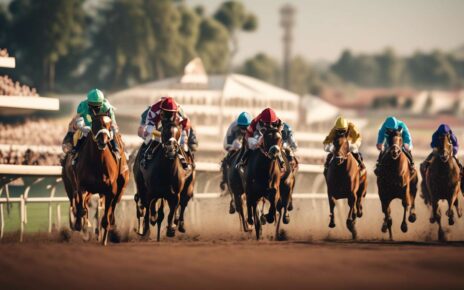As avid enthusiasts of betting systems, we have often found ourselves intrigued by the allure and simplicity of the Martingale betting system. This time-honored strategy, with roots tracing back to 18th-century France, promises the potential of recouping losses and achieving profitability with a simple doubling technique.
While the theory seems foolproof on paper, we understand that real-world applications often reveal a more complex picture. In exploring the Martingale system, we aim to dissect its advantages, such as:
- Its straightforward approach
- The psychological comfort it provides in believing that a win is just around the corner
However, we also must weigh these against its significant drawbacks, including:
- The risk of exponential losses
- The limitations imposed by betting caps
Through our examination, we hope to offer a balanced perspective that equips us all with a clearer understanding of whether the Martingale system is a viable strategy for our betting endeavors.
Simplicity and Ease of Implementation
The Martingale betting system is incredibly easy to understand and implement, making it accessible to both novice and experienced bettors alike. We’ve all been there, looking for a strategy that feels like a natural fit, offering a sense of belonging in the world of betting. With Martingale, we find comfort in its simplicity.
How it works:
- It requires us to double our bet after every loss.
- This creates a straightforward path to potentially recover our losses with a single win.
Risks and Considerations:
While the Martingale system is simple, it isn’t free from risk. As a community, we must acknowledge that the allure of recovery can sometimes lead us into risky territory.
- The system relies on the assumption of an eventual win, which isn’t always guaranteed.
However, its ease of use means we can quickly grasp the concept and participate confidently, sharing in the collective experience. Together, we navigate the risks, hoping for successful recovery while enjoying the shared journey.
Illusion of Quick Recovery
Many of us are drawn to the Martingale system because it promises a swift return to profit after a loss. The allure of quick recovery feels like a safety net, boosting our confidence and making us feel part of a savvy group utilizing a proven strategy.
The system’s premise is simple:
- Double our bet after each loss.
- A single win recovers previous losses and nets a profit.
On the surface, it seems like an unbeatable plan, especially in a community where success stories abound.
However, we must acknowledge the risk inherent in this approach. The illusion of quick recovery can mask the potential pitfalls. While it encourages us to persevere in the face of losses, it also assumes:
- An infinite bankroll
- No betting limits
These are two conditions rarely met in reality. Our shared enthusiasm for the Martingale should be tempered with an understanding of its limitations, reminding us that recovery isn’t always as immediate as it seems.
Potential for Rapid Losses
Many of us underestimate how quickly our bankroll can dwindle when doubling bets after consecutive losses. With the Martingale system, we’re essentially playing a game of risk, where the goal is recovery. However, the path to recovery can be treacherous and lead to rapid losses.
As a community of gamblers, we often share stories of thrilling wins, but we must also acknowledge the times when our luck ran out, and the Martingale strategy turned against us.
Key Risks of the Martingale System:
-
Doubling Bets: When we double our bets after each loss, we expose ourselves to the risk of hitting a losing streak that our bankroll simply can’t handle.
-
Illusion of Recovery: It’s easy to feel like we’re just one win away from recovering everything, but the reality can be harsh.
Our shared experiences remind us that while the allure of Martingale’s promise of recovery is strong, the potential for rapid losses is ever-present.
Let’s stay aware of these risks and approach our betting with caution and camaraderie.
Psychological Impact on Players
Many of us might underestimate how the pressure of chasing losses with the Martingale system can lead to stress and anxiety. As we double our bets in the hope of recovery, we expose ourselves to significant risk. This isn’t just about numbers on a screen; it’s about the emotional rollercoaster that comes with the possibility of winning it all back or losing even more. We feel the weight of each decision, knowing that one wrong move could lead to a financial setback.
In our shared experiences, we often hear stories of fellow gamblers who felt isolated by the pressures of the Martingale system. The need to recover losses can create a cycle of stress that impacts our relationships and mental well-being.
It’s crucial for us to recognize these psychological effects and find community support to navigate the highs and lows together. By understanding the emotional risks, we can approach the Martingale system more mindfully and protect our peace of mind.
Key Considerations:
- Recognize the emotional impact of betting systems.
- Seek community support to avoid isolation.
- Approach betting systems with mindfulness to maintain mental well-being.
Limited Profit Margins
Many gamblers quickly realize that the potential gains from the Martingale system are often minimal compared to the substantial risks involved. As a community, we’re always seeking strategies that promise a sense of security and unity in our shared pursuit of success. However, the Martingale approach, with its promise of recovery, tends to draw us in while masking its limited profit margins.
When we double our bets with each loss:
- The initial wins may seem appealing, but these are usually small.
- They don’t compensate for the significant risk involved.
- Our goal is to recover previous losses, yet the winnings often end up being just a fraction over the original stake.
This method requires deep pockets and nerves of steel, which not all of us possess.
The thrill of chasing losses might bond us in shared experiences, but we must remember that the Martingale’s rewards can be fleeting and rarely outweigh the hefty risks involved.
Let’s remain cautious and informed.
Risk of Hitting Betting Limits
Many of us underestimate how quickly we can reach a casino’s betting limits when doubling our bets with each loss. The Martingale system seems straightforward—recover losses by doubling the next bet. However, every loss brings us closer to the casino-imposed cap, increasing the risk of being unable to continue the strategy.
As a group that thrives on the thrill of calculated risks, we must be aware of this pitfall.
Consider this scenario:
- We’re on a losing streak.
- We double our bets, confident in our eventual recovery.
- Suddenly, we hit the casino’s betting limit.
- We can’t double down anymore, leaving us with significant losses and no way to recover them.
This scenario isn’t just possible; it’s probable, especially in casinos with lower limits.
To truly belong in the circle of informed gamblers, we should acknowledge these risks. Understanding the limitations and potential pitfalls of the Martingale strategy helps us make smarter, more sustainable betting choices, keeping our camaraderie and wallets intact.
Long-Term Viability Questioned
In examining the long-term viability of the Martingale system, we must confront the reality that its reliance on infinite resources makes it unsustainable for most bettors. While the allure of guaranteed recovery after a loss is tempting, we’re faced with the stark truth that unlimited funds are not a luxury we possess.
The Martingale Strategy:
- Requires doubling bets after every loss.
- Promises eventual profit.
However, what happens when our bankroll can’t keep up with this exponential risk?
As a community of bettors, we thrive on shared experiences and collective wisdom. We know the Martingale system can lead to significant losses when a streak of bad luck strikes. The risk of depleting our resources is ever-present and can leave us without a path to recovery.
Long-term success in betting requires strategies that:
- Adapt to our limitations.
- Offer sustainability over time.
Together, let’s seek approaches that prioritize these aspects and move away from strategies that challenge our financial boundaries.
Considerations for Responsible Gambling
Responsible Gambling
When considering responsible gambling, it is essential to prioritize setting strict budget limits to protect our financial well-being. By setting predetermined limits, we ensure that our gambling activities remain a source of entertainment and not a financial burden.
Community Approach
As a community of gamblers, we’re in this together, embracing the thrill while staying mindful of the risks involved. By supporting one another and sharing strategies for responsible play, we can enjoy the excitement of gambling while minimizing the potential for harm. Together, we can foster a culture of accountability, where shared experiences and insights guide our choices.
Martingale System Caution
The Martingale system, while enticing with its promise of recovery through doubling bets, demands caution. It’s crucial to acknowledge that the Martingale strategy, with its inherent risk, isn’t a guaranteed path to success.
- It can lead to significant losses if our budget isn’t carefully managed.
Financial Stability
Let’s remind each other that gambling should never compromise our financial stability. By being vigilant and responsible, we ensure that gambling remains a positive and enjoyable activity without adverse impacts on our lives.
Conclusion
In conclusion, the Martingale Betting System offers simplicity in implementation but comes with significant risks.
The illusion of quick recovery may lead to rapid losses, affecting players psychologically. While it can provide limited profit margins, there are concerns about:
- The risk of hitting betting limits.
- Its long-term viability.
Responsible gambling practices should always be considered when using this system.




